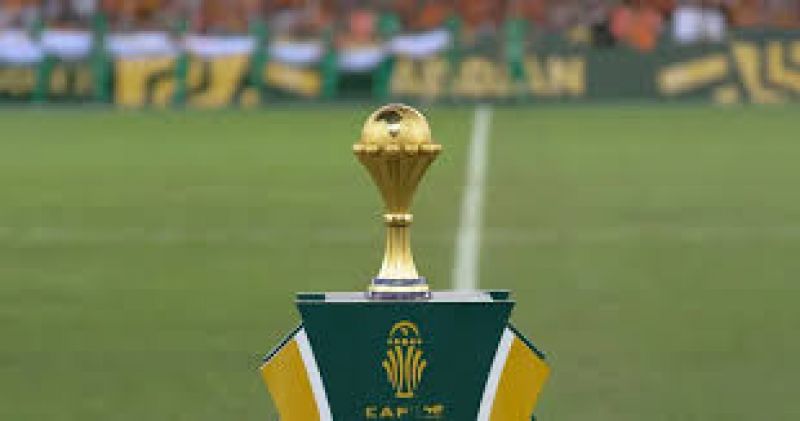By Daily Sports on September 27, 2017

I wish to share an interesting piece by author Stephen Tomkins on the increasing resemblance between football and the world of Christian worship. Though the piece was originally penned in 2004, the ever increasing attachment of fans of the beautiful game to the sport and its continuous resemblance to religious practices makes this piece continuously relevant. Enjoy.
MATCHES MADE IN HEAVEN
It was the national anthem that did it for me.
The sight, before the latest English match, of crowds of fans, hands raised to the skies, some of them with eyes closed, singing their hearts out (and, as it happens, imploring God's salvation, though the words were probably irrelevant), it looked for all the world like worship in a Pentecostal superchurch.
Admittedly, Christians tend to wear their crosses round their necks rather than on their faces, but otherwise it might easily have been a charismatic praise meeting where an unusual proportion just happened to be in red and white.
It was then I realised – football is a religion. It doesn’t just look like worship, it has taken over almost all the patterns of British life and behaviour that used to belong to Christianity.
Football provides the ritual of a weekend gathering for those who are truly committed. Those who are less devout can stay at home and watch Match of the Day, soccer’s Songs of Praise.
Football offers its adherents the annual calendar of fast and feast to shape their lives like the church year used to.
September is football’s Christmas, a joyful celebration of new birth after a season of expectant waiting that seems to begin earlier every year.
The close of the season brings Easter’s mix of grief and – if you’re lucky – triumph, followed by the long Lenten period of summer.
The great festivals of soccer, like the FA Cup and European Championships, allow Christmas-and-Easter believers to get all the football we need for another year.
Football has inherited all the tribalism of religion, giving followers something to belong to, bringing nations and communities together, and uniting them against the enemy – whether in physical violence or just chant.
Of course, churches tend to be rather friendlier to each other than rival soccer fans these days; but if you go to the right kind of church – the ones where worshippers act like England fans singing the national anthem – you can often hear songs that amount to telling the Devil “You’re going home in a – ambulance”.
Football has liturgy (“They think it’s all over...”), mysterious language (4-4-2, set pieces, sitting midfielders), songs of praise (“There’s only one David Beckham”) – and the terraces have even commandeered the church’s tunes.
There are holy mysteries for the initiated (the offside rule), and special clothes to set the professionals apart from the laity. The difference is that few Christians go to church wearing the vestments of their favourite priest.
Football has its own mythology too, those stories that believers tell to explain their identity and history. Christians have the Garden of Eden and the first Easter, England fans have Wembley 1966.
You might assume one does not need any particular beliefs to be a football fan, but really it’s all a matter of faith. Stadiums attract just as much superstition as churches, from pre-match rituals to lucky scarves.
Strikers are told they have to believe they will score. And supporters of every team with the right number of syllables recite together the creed:
“And it’s [football team],
[football team] FC,
We’re by far the greatest team the world has ever seen.”
Every church is the one true church.
Football even has its sacraments. There’s the ceremonial bathing where defeated teams and disgraced players can wash away the stain of their fall – perhaps after televised confession and repentance.
And when God’s representative on earth raises up the cup for the adoration of the masses, is he the priest at Holy Communion, or the captain at the cup final?
There are sports specialist schools these days where, as in church schools, children can study in an environment that nurtures the values, principles and knowledge of football.
But still the most common way of getting the religion of the pitch must be growing up in families where a love of the beautiful game is passed on from parents to children. The family that plays together stays together.
And “parents to children” it is, these days, rather than “father to son”. Both patriarchal institutions have opened their turnstiles to women to an unprecedented degree in the past couple of decades.
The only question is which will be first, a woman bishop, or a woman commentator on Match of the Day?
At his induction as player manager of the Church of England in 1991, George Carey quoted a saying of the great guru Bill Shankly, “Some people think football’s a matter of life and death. I can assure them it is much more serious than that.”
He then went on to claim that Christianity was a bit like that too. The moral of the story? Christianity is almost as much a religion as football.
Source Daily Sports
Posted September 27, 2017
You may also like...

Opposition fans don’t intimidate us – Onyeka

NOC creates a Safeguard commission

ISIS sends death threat to Messi, Neymar

Premier League Clubs Agree To Five Substitutions Rule...

EPL launches first ever Esports league

Joshua set for heavyweight tourney in December

_9.jpg) NPFL: Rangers win big as Nasarawa shock Abia
NPFL: Rangers win big as Nasarawa shock Abia Nigeria know World Table Tennis Champs foes today
Nigeria know World Table Tennis Champs foes today Bayelsa athletics boss Oredipe maps out dev plans
Bayelsa athletics boss Oredipe maps out dev plans Falcons stars dominate IFFHS Africa XI
Falcons stars dominate IFFHS Africa XI Eguavoen backs NPFL talents for Nigeria squad despite CHAN failure
Eguavoen backs NPFL talents for Nigeria squad despite CHAN failure He’s very strong, Simeone returns Osimhen praise
He’s very strong, Simeone returns Osimhen praise Joshua boxing return still uncertain
Joshua boxing return still uncertain NBA star Bane eyes Nigeria switch
NBA star Bane eyes Nigeria switch Palmer 'very, very happy' at Chelsea, says Rosenior
Palmer 'very, very happy' at Chelsea, says Rosenior_2.jpeg) AFCON 2025: VAR recording discloses what referee said before Morocco's penalty miss against Senegal
AFCON 2025: VAR recording discloses what referee said before Morocco's penalty miss against Senegal AFCON 2025 highlights: World-class stadiums, VAR drama, record attendance
AFCON 2025 highlights: World-class stadiums, VAR drama, record attendance Oliseh slams Osimhen for costing Eagles’ AFCON trophy
Oliseh slams Osimhen for costing Eagles’ AFCON trophy Rangers International going, going . . . (63,494 views)
Rangers International going, going . . . (63,494 views) Amaju Pinnick: A cat with nine lives (54,788 views)
Amaju Pinnick: A cat with nine lives (54,788 views) Second Term: Amaju Pinnick, Other NFF Heavyweights Home to Roost •How Pinnick Broke the Jinx (52,684 views)
Second Term: Amaju Pinnick, Other NFF Heavyweights Home to Roost •How Pinnick Broke the Jinx (52,684 views) Current issues in Nigerian sports: Matters arising (52,344 views)
Current issues in Nigerian sports: Matters arising (52,344 views) Sports Development: Zenith Bank on the zenith (52,277 views)
Sports Development: Zenith Bank on the zenith (52,277 views) Missing $150,000 IAAF Grant: Solomon Dalung’s Hide and Seek game (52,187 views)
Missing $150,000 IAAF Grant: Solomon Dalung’s Hide and Seek game (52,187 views) Gov. Abdullahi Ganduje’s solid footprints, commitment to sports development in Kano State (52,054 views)
Gov. Abdullahi Ganduje’s solid footprints, commitment to sports development in Kano State (52,054 views) NFF Presidency: Pinnick, Maigari, Ogunjobi, Okoye in Battle for Supremacy (51,608 views)
NFF Presidency: Pinnick, Maigari, Ogunjobi, Okoye in Battle for Supremacy (51,608 views) Olopade, BET9A wave of revolution in NNL (50,787 views)
Olopade, BET9A wave of revolution in NNL (50,787 views) Commonwealth Games 2018: Shame of Muhammadu Buhari, Solomon Dalung (49,315 views)
Commonwealth Games 2018: Shame of Muhammadu Buhari, Solomon Dalung (49,315 views) Ibrahimovic’s Man U exit: Whose decision is it? And in whose interest? (47,704 views)
Ibrahimovic’s Man U exit: Whose decision is it? And in whose interest? (47,704 views) John Mikel Obi: Segun Odegbami’s Outrageous Call! (47,173 views)
John Mikel Obi: Segun Odegbami’s Outrageous Call! (47,173 views)